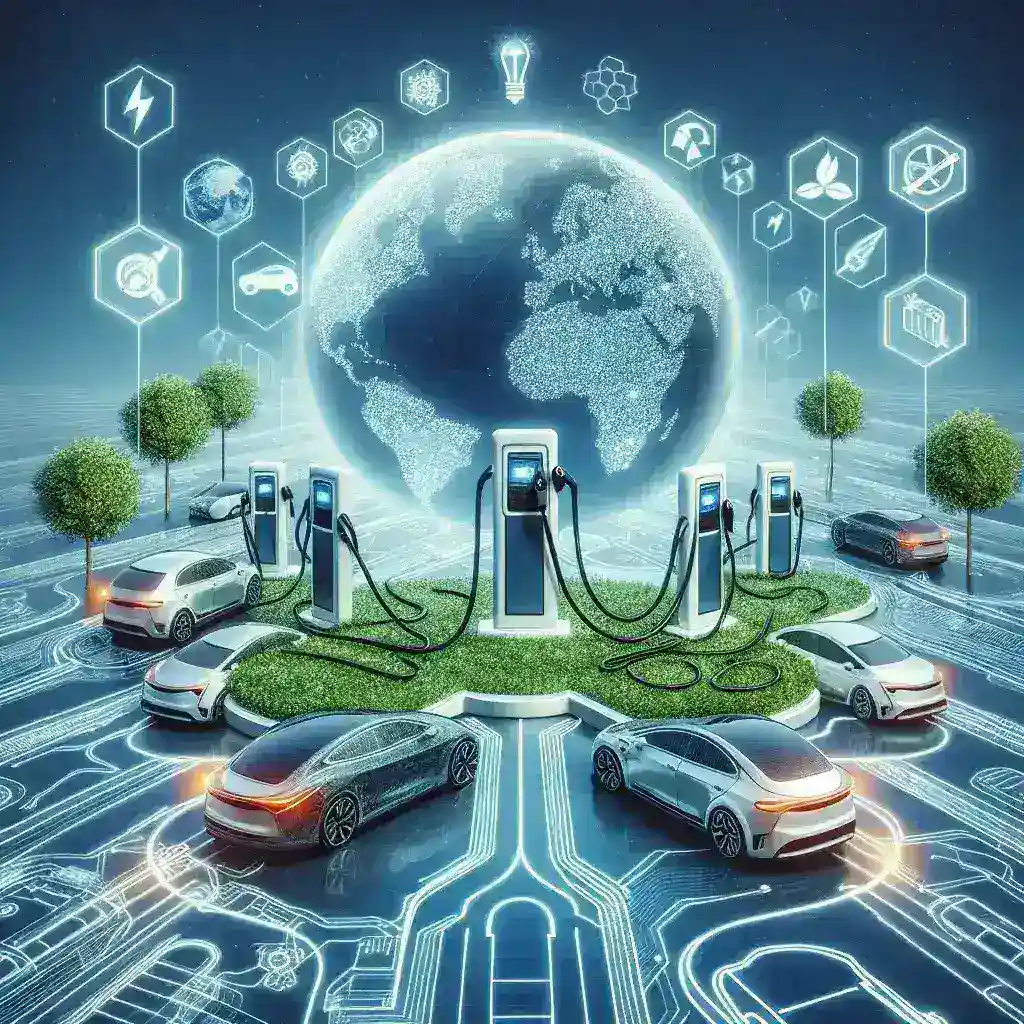Introduction
The automotive industry is witnessing a transformative shift towards electric vehicles (EVs), propelled by innovations in battery technology. As consumers demand greener alternatives and faster charging solutions, scientists and engineers are focusing on developing sustainable and efficient battery chemistries. This article delves into the latest advancements in electric vehicle battery innovations, emphasizing sustainable materials and fast-charging capabilities.
The Need for Sustainable Battery Solutions
With the global push towards reducing carbon emissions and combating climate change, the demand for sustainable battery technologies has never been higher. Traditional lithium-ion batteries, while effective, raise concerns over resource depletion and environmental impact. As a result, researchers are exploring alternative materials and chemistries that can mitigate these issues.
Environmental Impact of Current Battery Technologies
The extraction of lithium, cobalt, and nickel used in conventional batteries poses significant environmental challenges. Mining practices can lead to habitat destruction, water pollution, and toxic waste. Moreover, the finite nature of these resources makes them less sustainable in the long run. This urgency has spurred innovation in battery technology, focusing on materials that are abundant and environmentally friendly.
Innovative Battery Chemistries
Recent developments in battery chemistries promise to revolutionize the EV market by enhancing sustainability and performance. Here are some of the most promising innovations:
1. Solid-State Batteries
Solid-state batteries replace the liquid electrolyte found in traditional lithium-ion batteries with a solid electrolyte. This design enhances safety by reducing flammability risks and can increase energy density, leading to longer ranges for electric vehicles.
Benefits of Solid-State Batteries
- Higher energy density allows for longer driving ranges.
- Improved safety due to reduced risk of leakage and fire.
- Longer lifespan and faster charging capability.
2. Sodium-Ion Batteries
Sodium-ion batteries are emerging as a potential alternative to lithium-ion batteries. Sodium is more abundant and less expensive, making these batteries an attractive option for sustainable energy storage.
Advantages of Sodium-Ion Batteries
- Utilization of abundant resources reduces environmental impact.
- Lower production costs make EVs more accessible.
- Comparable performance to lithium-ion batteries in certain applications.
3. Lithium-Sulfur Batteries
Lithium-sulfur batteries utilize sulfur, which is abundant and environmentally friendly, as a cathode material. These batteries have the potential to offer significantly higher energy densities than traditional lithium-ion configurations.
Key Benefits of Lithium-Sulfur Batteries
- Higher energy density translates to longer EV ranges.
- Lower environmental impact due to the use of sulfur.
- Potentially lower costs due to abundant materials.
Fast-Charging Innovations
In addition to sustainability, the speed of charging is a crucial factor in electric vehicle adoption. Manufacturers are exploring various technologies to facilitate faster charging times, which can significantly enhance user experience.
1. Ultra-Fast Charging Stations
Ultra-fast charging stations are being developed to provide rapid charging solutions for EVs. These stations can deliver high power levels, allowing drivers to recharge their vehicles in a matter of minutes rather than hours.
Impact of Ultra-Fast Charging
- Reduces charging time to comparable levels with traditional refueling.
- Encourages EV adoption by alleviating range anxiety.
- Enhances the overall convenience of owning an electric vehicle.
2. Battery Management Systems (BMS)
Advanced battery management systems play a critical role in optimizing charging speeds and maintaining battery health. These systems monitor various parameters, ensuring safe and efficient charging and discharging processes.
Benefits of Effective BMS
- Prolongs battery life through optimal charging cycles.
- Facilitates rapid charging without overheating or damaging cells.
- Enhances overall vehicle performance and reliability.
Future Predictions and Trends
The future of electric vehicle battery technology is bright, with ongoing research and investment driving innovations. As governments worldwide implement stricter emissions regulations and consumers increasingly prioritize sustainability, the shift to advanced battery chemistries will accelerate.
1. Economic Implications
As battery technologies evolve, the costs associated with electric vehicle production will likely decrease. This could lead to a significant reduction in the price of EVs, making them accessible to a broader audience.
2. Environmental Benefits
Transitioning to sustainable battery technologies can contribute to a decrease in the environmental footprint of electric vehicles. Utilizing resources that are abundant and environmentally friendly will help mitigate the ecological impact of battery production.
3. Enhanced User Experience
With innovations in fast-charging technologies, the inconvenience of long charging times may soon be a thing of the past, leading to a more seamless and user-friendly experience for electric vehicle owners.
Conclusion
The innovations in electric vehicle battery technologies focusing on sustainable and fast-charging chemistries signify a pivotal moment in the automotive industry. As we move towards a greener future, the advancements in battery technologies will not only enhance the performance and safety of electric vehicles but also contribute to a more sustainable planet. The continued exploration and development of these innovative solutions will play a critical role in shaping the next generation of electric mobility.


Leave a Reply